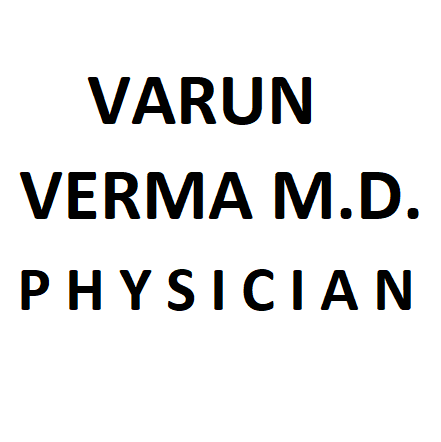Embarking on a journey through medical school is both exhilarating and challenging. I wish I had stuck my head outside books now and then and really explored what the world beyond board exams and ward rotations would be like. Alongside rigorous academic training, certain books can provide invaluable insights into the human side of medicine, effective practices, and personal growth.
Here’s a recommended reading list for all medical school students, residents and early career physicians, complete with summaries to help you understand why these books are essential additions to your library.
- When Breath Becomes Air by Paul Kalanithi
Obviously none of us are immune to becoming the patient one day and this book is the perfect reminder to focus on those we love and the present moment.
Summary:
“When Breath Becomes Air” is a poignant memoir by neurosurgeon Dr. Paul Kalanithi, who chronicles his journey from being a doctor treating terminally ill patients to becoming a patient himself after being diagnosed with terminal lung cancer. Kalanithi’s writing delves deeply into questions of life, death, and the meaning of human existence. He reflects on his transition from a medical professional to a patient, offering profound insights into the doctor-patient relationship and the existential dilemmas faced by both. This book is a must-read for all of us as it provides a unique perspective on the fragility of life and the empathy required in the medical profession.
- The Checklist Manifesto by Atul Gawande
All of his books are excellent but this one is particularly enthralling and shows the tremendous impact we can all have on the healthcare system.
Summary:
In “The Checklist Manifesto,” renowned surgeon and writer Atul Gawande explores how the simple tool of a checklist can significantly improve outcomes in complex fields such as medicine, aviation, and construction. Gawande shares compelling stories and research to demonstrate how checklists can enhance performance and reduce errors, even for highly skilled professionals. The book emphasizes the importance of humility, discipline, and teamwork in achieving excellence. For medical students, this book is an essential read as it underscores the importance of meticulousness and structured processes in medical practice, which can save lives and improve patient care.
- Mountains Beyond Mountains by Tracy Kidder
Paul Farmer died in 2022, but through three decades of service he inspired countless others to follow in his footsteps of fighting for global heath justice.
Summary:
“Mountains Beyond Mountains” tells the inspiring story of Dr. Paul Farmer, a physician and anthropologist dedicated to providing healthcare to the world’s poorest populations. Written by Pulitzer Prize-winning author Tracy Kidder, the book follows Farmer’s efforts to treat infectious diseases, particularly tuberculosis and HIV/AIDS, in Haiti and other developing countries. The narrative highlights Farmer’s relentless commitment, innovative approaches, and the challenges of global health work. Medical students will find this book both motivating and enlightening, as it showcases the impact of dedication and compassion in addressing health disparities and advocating for social justice in healthcare.
- Die With Zero by Bill Perkins
This one has nothing to do with physicians specifically – but I encourage you to read it as it offers great wisdom of being conscious of what and how you spend and save your money.
Summary:
“Die With Zero” by Bill Perkins is a thought-provoking guide that challenges traditional views on saving and spending throughout one’s life. Perkins advocates for optimizing life experiences and ensuring that one fully enjoys the fruits of their labor while they are still able to. He presents strategies for balancing wealth accumulation with meaningful life experiences, emphasizing the importance of living fully and intentionally. For medical students, this book offers valuable lessons on time management, financial planning, and the importance of maintaining a work-life balance, which is crucial in a demanding profession like medicine.
- Never Split the Difference by Chris Voss
Perhaps every interaction in healthcare is a negotiation. Whether it’s with patients, consultants or insurance companies. This book gives one a broad education in the art of negotiation.
Summary:
In “Never Split the Difference,” former FBI hostage negotiator Chris Voss shares negotiation techniques honed in high-stakes situations. Voss introduces the concept of tactical empathy and provides practical tools for effective negotiation, such as mirroring, labeling, and the “accusation audit.” His methods, illustrated with real-life examples, emphasize the importance of understanding and influencing human behavior to achieve desired outcomes. Medical students will benefit from this book as it offers essential skills in communication, conflict resolution, and patient interactions, all of which are critical in the medical field where clear and empathetic communication can significantly impact patient care and outcomes.
Conclusion
These five books offer a wealth of knowledge and perspectives that are invaluable for medical students. “When Breath Becomes Air” provides a deeply personal look at life, death, and the doctor-patient relationship, while “The Checklist Manifesto” highlights the importance of structured processes in reducing errors and improving outcomes. “Mountains Beyond Mountains” inspires with the story of a physician dedicated to global health and social justice, and “Die With Zero” offers a fresh perspective on balancing work, life, and financial planning. Lastly, “Never Split the Difference” equips readers with essential negotiation and communication skills. Together, these books enrich the medical education experience, providing insights that go beyond the classroom and into the heart of what it means to be a compassionate and effective healthcare professional.
